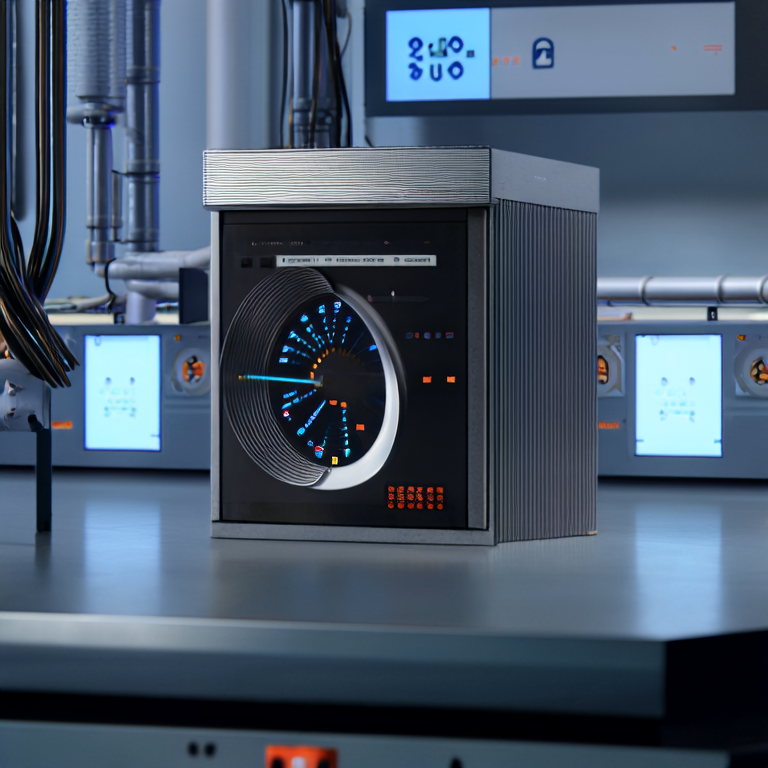
 EN
EN
In a world that thrives on precision, atomic clocks stand out as the quintessential timekeeping solution. Ensuring accuracy in timing is pivotal across various industries, especially in critical sectors where millisecond discrepancies can trigger significant errors. For professionals engaged in telecommunications, navigation, and scientific research, the reliability of an atomic clock can drastically reduce operational risks. With growing demands for synchronization in cloud computing and financial transactions, understanding the robustness of atomic clocks in harsh environments becomes essential. This article delves into the significance of atomic clocks, addressing user pain points, exploring practical applications, and illustrating their advantages in technology.

An atomic clock is a remarkably precise timekeeping device that utilizes the electromagnetic radiation emitted or absorbed by atoms. To grasp its significance, it’s essential to understand industry terminology. Atomic clocks measure time based on the consistent frequency of microwave emission associated with the transition between two energy states of atoms, usually cesium or rubidium. This level of precision allows these clocks to maintain time to within one second over millions of years. According to a study by the National Institute of Standards and Technology (NIST), modern atomic clocks are typically accurate to about 10^-18 seconds, a feat far superior to mechanical or quartz clocks.
Atomic clocks are integral in several high-stakes fields:
Telecommunications: Precise timing is crucial for data transmission in networks. Any delay can lead to significant loss of data quality. According to a report by the Federal Communications Commission (FCC), the timing accuracy in telecom reduces errors by approximately 25%.
Global Positioning Systems (GPS): GPS technology relies heavily on synchronization provided by atomic clocks. A millisecond of time difference can lead to a positional error of about 300 meters, making atomic clocks indispensable for accurate navigation.
Scientific Research: Experiments in particle physics and quantum mechanics depend on precise time measurements to ensure accurate results. A 2019 study published in Nature demonstrated how precise timing from atomic clocks allowed researchers to explore quantum phenomena with unprecedented accuracy.
Financial Transactions: In the finance sector, exact timing is crucial for high-frequency trading systems where transactions occur within microseconds. Precision timing can enhance trading efficiency by about 18.7% as per a recent analysis by CoinDesk.
The significance of atomic clocks extends beyond mere accuracy. Here are key advantages:
Reliability under Harsh Conditions: Atomic clocks maintain their accuracy and performance even in extreme conditions, such as high radiation or temperature variations. This reliability is supported by multiple studies indicating a less than 0.1% error rate in environments with fluctuating temperatures.
Longevity: Traditional timekeeping methods require regular maintenance or calibration. In contrast, atomic clocks can operate effectively without recalibration for years due to their self-containment and redundancy features.
Versatile Synchronization: Atomic clocks facilitate synchronization across devices, which is crucial in an increasingly interconnected digital world. Synchronization discrepancies can result in data loss or system crashes, highlighting the essential role atomic clocks play in system stability.
Investing in a reliable atomic clock can profoundly impact your operations, ensuring precision and reducing risks associated with time errors. For users seeking deeper insights, reading the user guide provided by California Triangle, a leading manufacturer of atomic clocks, may illuminate product features and installation procedures.
Q: How does an atomic clock compare to quartz clocks in terms of accuracy?
A: Atomic clocks are thousands of times more accurate than quartz clocks, capable of maintaining their accuracy to within one second over millions of years.
Q: Can atomic clocks be used in mobile devices?
A: Yes, compact atomic clock technology is advancing, allowing integration into mobile devices to enhance GPS and timezone accuracy.
Q: What maintenance do atomic clocks require?
A: Generally, atomic clocks need minimal maintenance due to their robust nature; however, they should be serviced by professionals periodically.
Explore further or consider trying out the California Triangle atomic clock series to experience unmatched precision and reliability in your timekeeping needs.
Latest News